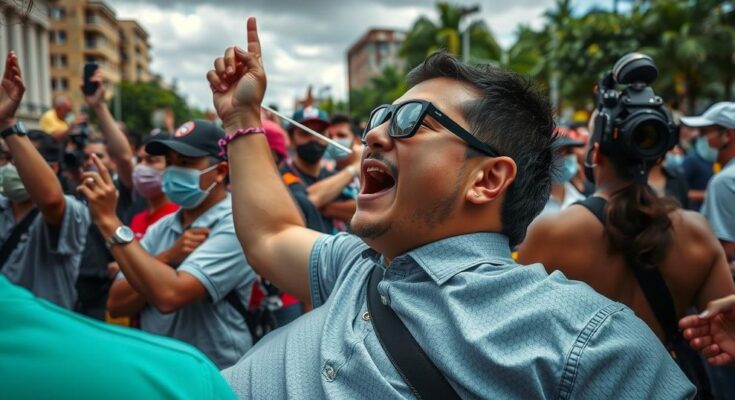Venezuelan Attorney General Tarek Saab announced the release of 146 election protesters, raising the total to 1,515 amidst a crackdown following the controversial July 28 election. As President Maduro prepares for a disputed third term, the opposition claims electoral fraud and has shown significant resistance despite harsh governmental repression.
The Venezuelan government has declared the release of 146 protesters who were arrested during demonstrations following the controversial presidential election on July 28. This announcement, made by Attorney General Tarek Saab, raises the total number of individuals freed to 1,515 since the government’s crackdown on dissenters. The move coincides with President Nicolas Maduro’s impending inauguration for a disputed third term, amidst allegations of electoral manipulation and human rights violations that have sparked widespread protests.
Maduro’s administration faced significant backlash after the election results, with accusations that his government had not provided a transparent accounting of the voting process, instead announcing his victory shortly after polls closed. The opposition has since claimed the true winner was Edmundo Gonzalez based on independent voting tallies they published, which allegedly show him defeating Maduro by a significant margin. Human rights advocates report that during the post-election turmoil, around 2,000 people were arrested, and 23 protesters lost their lives.
While Venezuela’s courts have upheld Maduro’s election results, the opposition insists that these institutions are dominated by regime loyalists. In a continuing effort to arrest Gonzalez, who has been living in exile, the Venezuelan government issued a $100,000 reward for information regarding his location. In response to his situation, Gonzalez has declared his intention to return to Venezuela, and the opposition publicly called for the military to acknowledge his leadership.
As international scrutiny increases, including potential discussions with the outgoing U.S. President Joe Biden, the prospects for revitalizing democratic practices in Venezuela remain unclear. Concurrently, mounting economic sanctions alongside internal repression have led to an exodus, with approximately 7.7 million Venezuelans fleeing the country in recent years, exacerbating an already dire humanitarian crisis.
In the context of Venezuela’s ongoing political turmoil, the announcement of releasing election protesters reflects the profound divisions and tensions following the latest presidential election. The election results were contested fiercely, with allegations of fraud and human rights abuses surfacing immediately after the polls closed. The political landscape is marked by the Maduro government’s attempts to consolidate power while facing widespread dissent and international criticism. Understanding these dynamics is essential to grasp the complexities of the situation, where the opposition strives for recognition and redress amid significant risks and governmental repression.
The recent release of 146 protesters signals a response from the Maduro administration amidst escalating pressure both domestically and internationally. The political landscape in Venezuela remains turbulent, characterized by contested elections, allegations of human rights abuses, and a deepening economic crisis that continues to drive emigration. As President Maduro prepares to assume a controversial third term, the calls for change from the opposition, particularly figures like Edmundo Gonzalez, highlight the struggle for democratic governance in Venezuela.
Original Source: www.aljazeera.com




